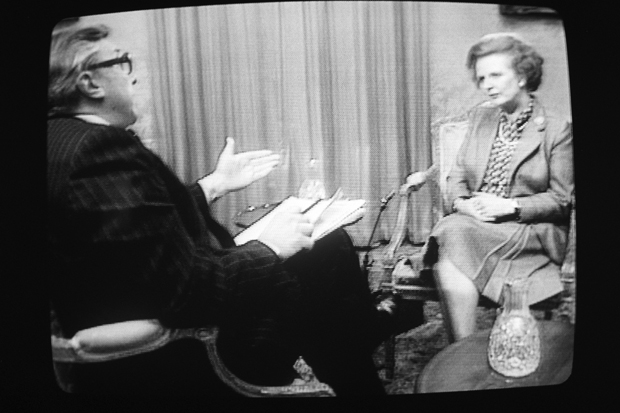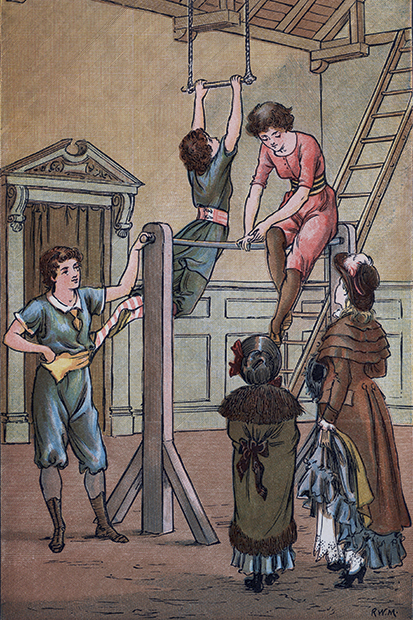In a cheeringly Dickensian fashion, the names of our supposed experts on grammar imply they want to bind writers (Lynne Truss); send them awry (Kingsley Amis); besmirch their prose (H.W. Fowler); deafen them with moos (Simon Heffer); or snort at their legitimate constructions (John Humphrys).
At first glance, Oliver Kamm appears happy to keep them company. A leader-writer for the Times and its resident authority on style, Kamm is the most small ‘c’ conservative man I know. If he has ever left home without cleaning his shoes — and I doubt that he has — he would have realised his mistake before reaching the end of his road, and rushed back to apply the polish. Instead of joining the pedants, however, Kamm batters them. Accidence Will Happen is a joyous and joyously liberating assault on ‘rules’ of grammar which are little more than a hodgepodge of contradictory superstitions.
Kamm’s weapons are erudition and raw polemical vigour. Berating people on superstitious stylistic grounds is worse than self-defeating, he says. ‘It undermines the cause of clear writing and damages appreciation of the real study of language.’
There is no literate reason for thinking end-of-sentence prepositions are prepositions to be scared of. And no reason not to start sentences with ‘and’. To shrilly insist on never splitting infinitives is to fall into the mistake first made by 18th-century grammarians that English is Latin. (It isn’t, by the way.) ‘The journalist was forced strenuously to insist he hadn’t fiddled his expenses’ is poor English. Does it mean the force used was strenuous or the denial was strenuous? Worse, like so many other pseudo-rules, it trips up writers and speakers, ties their tongues and dents their confidence
Unlike so many others who arbitrate on usage, Kamm relies on linguistic scholarship rather than the prohibitions of long-dead schoolmasters. No serious scholar believes that a language is anything other than what people write and speak. In language, you cannot be right against the world. If an ‘incorrect’ form is more widely understood than its alternative, it cannot be ‘wrong’. There is no external judge who can pass a guilty sentence on common usage for a reason Dr Johnson understood when he rejected proposals for an English version of the Académie Française. You cannot, he said, preserve obsolete words and forms when what makes them obsolete is the ‘general agreement to forbear’ them.
You may regret that disinterested can now mean uninterested as well as impartial, although if you make a fuss you will betray your ignorance that in the 17th century disinterested meant uninterested too. You may want to ban people from starting sentences with ‘hopefully’ — although no pedant has explained why it is not also wrong to start sentences with ‘thankfully’ — but you will be fighting a losing battle against a living language, which is always changing. Your ‘rules’ will be no more than incoherent prejudices.
In their barren hearts, pedants must know this. I assume that not even Simon Heffer would call his wife and announce, ‘Darling, it’s I’. (But maybe I am doing him a disservice.)
Kamm is not a siren luring us into linguistic permissiveness. As he says, children master the complex grammar of their native tongue with astonishing speed. We already know grammar. (If we didn’t, we would not be understood.) Nor does Kamm argue that poor children should not master Standard English. It is the dialect of social advancement, and they need it to succeed in the world, whatever dialect they use at home or among their friends.
Rather he fights to allow Standard English to breathe. The second half of his book is an A-Z list of usage conundrums. It is the most sensible style guide I have read, not least because Kamm always puts clarity first. I have only had Accidence Will Happen for a week, and have already referred to it dozens of times.
If this book is a bestseller, as it may well be, its monument will be the liberated prose of the writers Kamm has freed. Instead of stumbling on the obstacles pedants have strewn in their path, they will concentrate on the hard but satisfying task of working out what they want to say and who they want to say it to. They will rise like lions from their slumber. They will cast off the chains of Truss, send the Heffer out to pasture, and in an indomitable voice cry, ‘Yes we Kamm!’
Got something to add? Join the discussion and comment below.
Get 10 issues for just $10
Subscribe to The Spectator Australia today for the next 10 magazine issues, plus full online access, for just $10.
Available from the Spectator Bookshop, £10.99 Tel: 08430 600033
You might disagree with half of it, but you’ll enjoy reading all of it. Try your first month for free, then just $2 a week for the remainder of your first year.















Comments
Don't miss out
Join the conversation with other Spectator Australia readers. Subscribe to leave a comment.
SUBSCRIBEAlready a subscriber? Log in